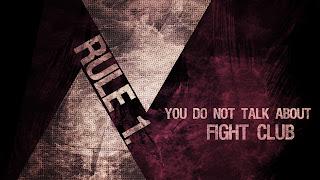 The second principle is especially important to me. You see, I'm an incy wincy bit of a control freak. I have a tendency to try and control everything I'm involved in, working from the not-too-health assumption that if I don't do it it won't be done properly, or even at all. Of course this assumption comes from the even more worrying and arrogant assumption that I know what is best in the first place! In the past, this tendency to force things to happen 'my way' has been very detrimental to initiatives I've been involved in, so it's definitely time for an alternative approach.
The second principle is especially important to me. You see, I'm an incy wincy bit of a control freak. I have a tendency to try and control everything I'm involved in, working from the not-too-health assumption that if I don't do it it won't be done properly, or even at all. Of course this assumption comes from the even more worrying and arrogant assumption that I know what is best in the first place! In the past, this tendency to force things to happen 'my way' has been very detrimental to initiatives I've been involved in, so it's definitely time for an alternative approach.
I'm liking the gardening analogy here. For a plant to grow and thrive, it firstly needs the correct mixture of soil, water and sunlight, but then must be allowed to do its own thing. If the gardener insisted on changing the soil, or adding more water, or putting it in different places to receive more or less sunlight every few minutes because it wasn't growing as quickly as he'd like, I very much doubt that the poor plant would get much growing done at all. Of course, as it became bigger it would need some pruning, some guidance, but it really isn't anything to do with the gardener as to what the thing will look like or what shape it will take as it becomes itself. That's nature's job. That's out of his control.
What mix of soil, water and sunlight shall be used to allow this community to grow? Simplicity is key, no massive events or outreach projects. A space to encounter God is all that's needed, where folk can come (of not) to be still and pray. Rhythm is an important monastic ideal that helps us connect with ourselves, the universe and God. Oh, and eating! I'm a massive fan of parties, and it's worth noting that the Lord himself loved a shindig with good food and drink!
So, perhaps a weekly meal together, with a time for remembering Jesus, being still and praying included? We could put some music on and have a sing if we fancied (not necessarily the cheesy Christian stuff!), but keep the whole thing laid back and chilled. A daily time and space for prayer somewhere in The Gate? In the morning? Folk could begin the day having had some space to centre themselves. And parties! Celebrations at important times and seasons through the year, both religious and 'secular'.


















